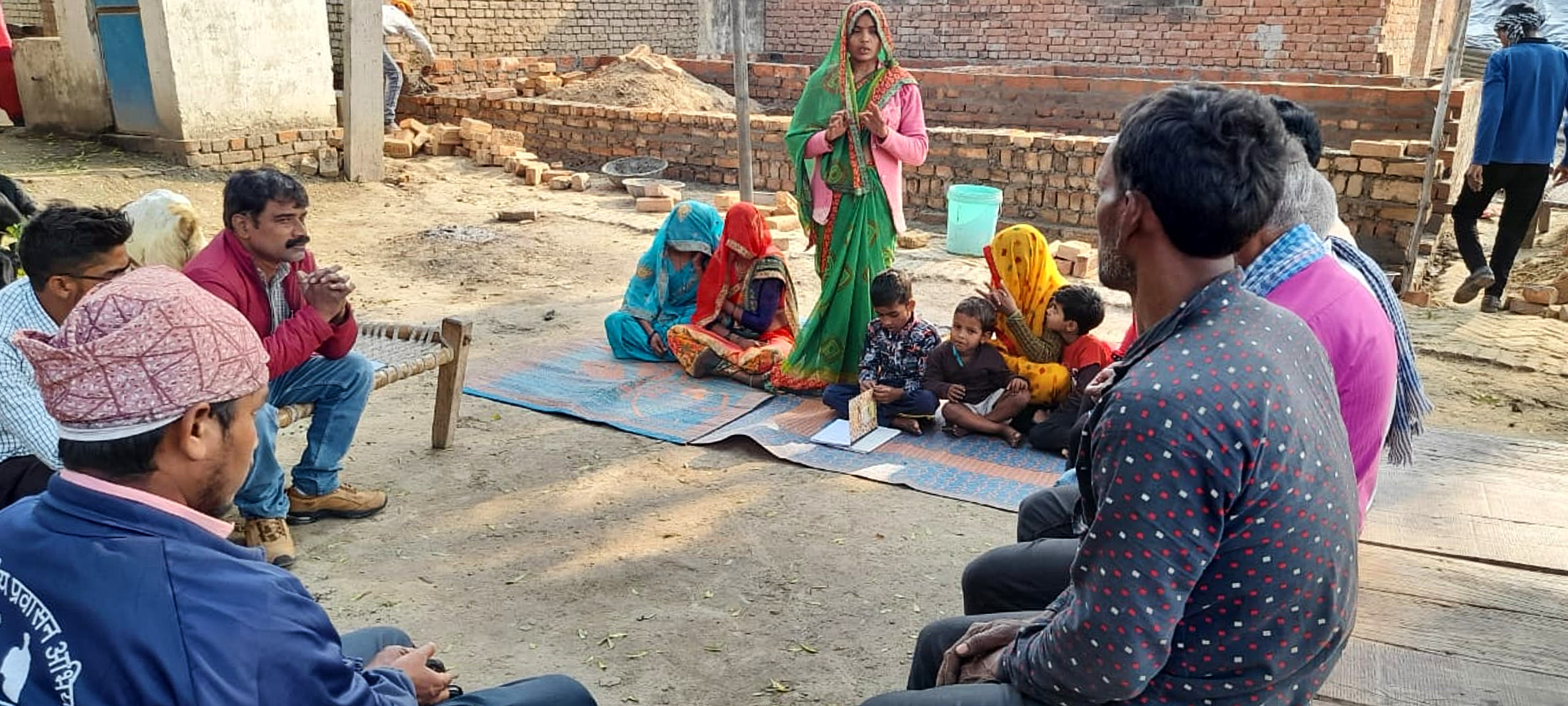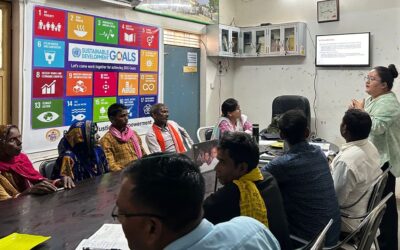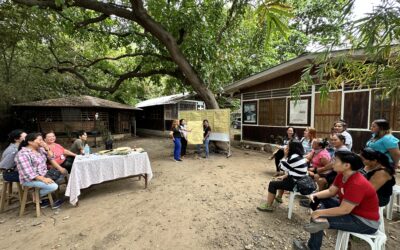The majority of people who immigrate and work abroad are Indian citizens. With an estimated 25 million Indians living abroad, India has always been the country that gets the most revenue from its overseas citizens. Almost 40% of these people live and work as migrant workers in Gulf Cooperation Council (GCC) countries. The connection between India and the Gulf region is the world’s second-largest migratory corridor. A large number of Indians (reported to be between 8 and 10 million) work in low-profile jobs in the Persian Gulf region, such as construction, restaurants, transportation, small businesses, service industries, and domestic services. These daily wage laborers are frequently given free housing or allowances for housing and food. Many attempt to boost their monthly earnings by working overtime.
Indian migrant workers have contributed significantly to the economic growth of the Gulf States. Yet, that comes at a price, as they do not have a safety net, social security protection, welfare mechanisms or labor rights. Between January and June of 2022, more than 9,500 complaints came to India’s foreign ministry from migrant workers in the Gulf. Most of them were worried about not getting paid, not having days off or health insurance, and not being able to go home to India because they didn’t have exit or re-entry visas. Many of the workers who get scammed are unskilled or semi-skilled workers who were promised good pay and easy work by recruiters. Some are stuck in low-paying jobs like housekeeping, where they often work up to 15-hour days and are verbally or physically abused.
The vast majority of the Indian expatriate workforce in the Gulf is made up of temporary blue-collar workers who have paid exorbitant recruitment fees to sell their labor. Their unstable lives are made official by a system for sponsoring foreign workers. The Kafala system of foreign worker sponsorship, which ties workers to their employers, is still common in the Gulf States and has made it more likely for people to move there to find work. Some people have said that the system is like “modern slavery” or “contract slavery.” Human rights groups have called it “a labyrinth of abuse.” Others have talked about how bad the housing situation is for migrant workers. Hundreds of people are said to have died from heat stress.
A recently manifested issue involves recruiting agents kidnapping domestic employees and demanding substantial ransoms from their families in order to return them safely to their homes. Since their family can’t afford the ransom, many people are trapped there, frequently imprisoned in homes. Families of women who work in the Gulf are charged enormous sums of money by agents to facilitate their return home. Often, the agents retain the women’s passports, making them virtual hostages in a foreign country. Unless the family can raise the required funds, the worker is abused and mistreated while in the agent’s care, which puts the family in a serious financial bind. It is especially difficult to track down persons who moved to Bahrain, Kuwait, Qatar, Saudi Arabia, Oman, and the United Arab Emirates because of the prevalence of illegal migration to those countries.
From December 2020 to June 2022, Free the Slaves and its in-country partner MSEMVS carried out the Verite-funded “Safe Migration to the Gulf Countries” initiative. Under the initiative, Verite, FTS, and MSEMVS created the Safe TIPS handbook to raise awareness around the best practices for safe migration to the gulf nations. Seven thousand people were assisted through trainings, briefings, and awareness camps as part of the program.
As the project approached its completion in June 2022, participants from the field gathered for a workshop to formulate a strategy for handing off the project to community leaders:
● The village heads took the responsibility of raising awareness in their villages by organizing sessions/talks on safe international migration during the village-level meetings and discussions.
● One of the most important activities to sustain the work on safe migration in the villages was maintaining the tracking registers by the members of the Migrant Vigilance Committees. The Migrant Vigilance Committee (MVC) members continued to inform the Community Vigilance Committee (CVC) leaders about the cases in their communities. They ensured that the CVC leaders entered and registered the data.
● The CVC members organized information sessions in their community’s schools.
● The district-level CVC leaders visited and trained the prospective migrant workers on the Safe TIPS guide.
● A few village heads took the responsibility of providing financial support to the CVC members for creating educational murals and putting up posters around their villages.
Free the Slave’s Asia team, and MSEMVS’s team were in close contact with the CVCs at the village and district level after the project was wrapped up in June 2022. Below are the activities carried out by the trained CVC members and MVC members in the communities after the official close of the project:
1. The number of migration entries/cases in the village/district-level migrant registers increased
The CVC members, as well as the MVC members, have been identifying cases of international migration from the communities and recording them in the Migrant Tracking Register.
2. Trained Community Vigilance Committee members continued to conduct training after the project was finished.
Trained CVC leaders conducted one-to-one meetings with potential migrant laborers in different villages in both districts for briefing/training them on the ‘Safe Tip Guide.’ The trained CVC leaders have also been briefing the family members of migrant workers working in gulf countries on the Safe Tips guide in one-to-one meetings.
3. Status of the Migration Vigilance Committees formed during the project
The members of MVCs are reporting cases to the CVC leaders, and the cases are registered in the village-level migrant tracking register. At the beginning of the project, village leaders in several villages were not cooperating in forming and heading the MVCs. The CVC members had to form the MVC with other stakeholders. Thankfully CVC members have convinced the village heads to participate in the MVC to support the CVC members.
4. Status of the CVCs formed
Most of the CVCs in the villages are active and conduct monthly meetings. The CVC members are also identifying cases from the villages and training the identified migrant workers and the family members of the migrants working in a gulf country. The CVC members are also connected closely with other district members for regular updates and sharing details of the cases identified.
During the project’s time frame, CVC members sent a letter to candidates for the Legislative Assembly Election, asking for a training facility, dedicated personnel, and an office for the migrant workers and activities for awareness raising targeting migrant workers. The letter was followed up on in July 2022, when CVC leaders met with the local lawmaker they’d chosen to represent them. Both districts’ (Member of Legislative Assembly) MLAs expressed a need for further information on the scope of the problem posed by risky migration and the importance of the proposed office and training facility. At that point, they will write to the Foreign Minister with the CVC members’ requests and supporting evidence. The MLAs advocated for continued communication between the CVC and themselves.
Starting in January of 2023, MSEMVS, Free the Slaves, and Verite launched the project’s second phase. When the first part of the initiative was being carried out, it became clear that unlawful and excessive recruitment fees levied by recruiting brokers were the primary concern of foreign migrant workers. The second stage of the initiative will educate both migrant workers and recruiters who are now paying excessive recruiting costs but are ignorant of the ways in which their recruitment agencies are abusing their recruitment agencies are abusing them.
Footnote
1 – A Member of the Legislative Assembly is a representative elected by the voters of an electoral district to the legislature of the State government in the Indian system of government. From each constituency, the people elect one representative who then becomes a member of the Legislative Assembly.




